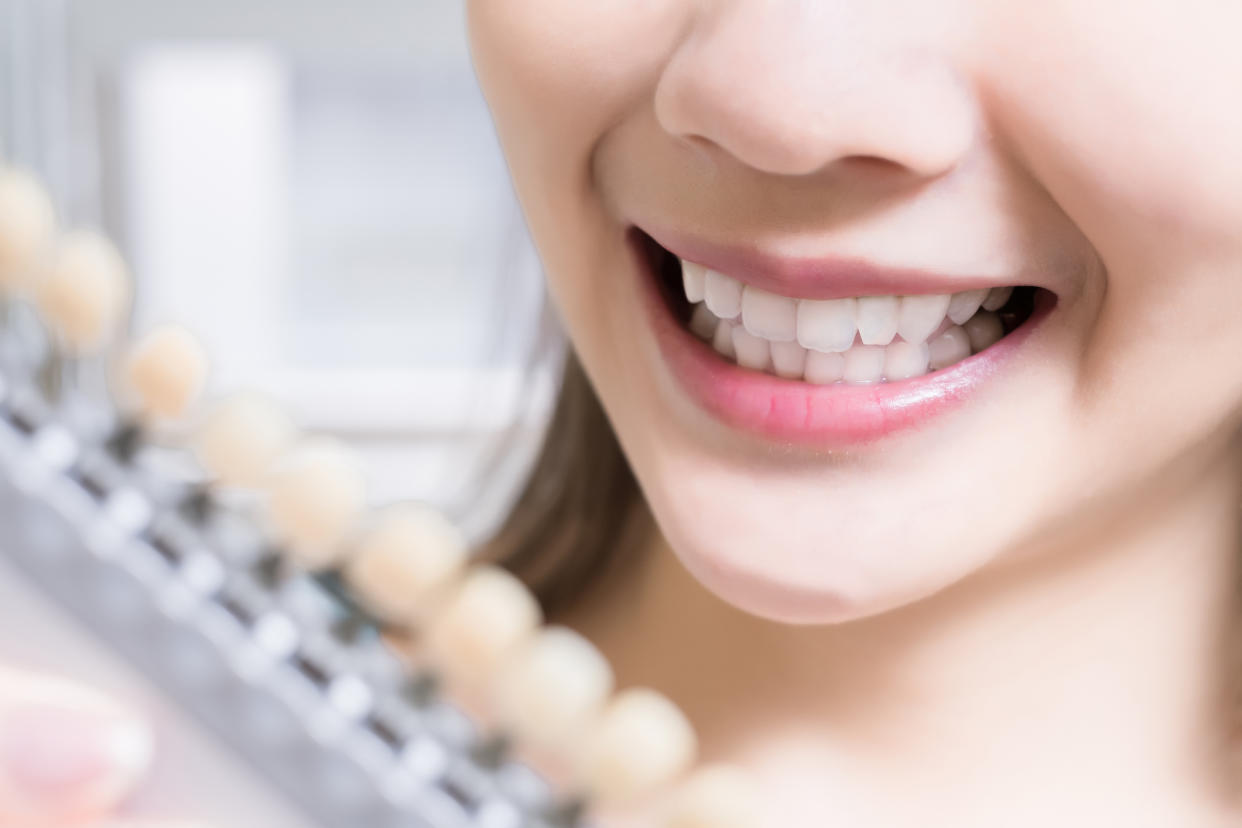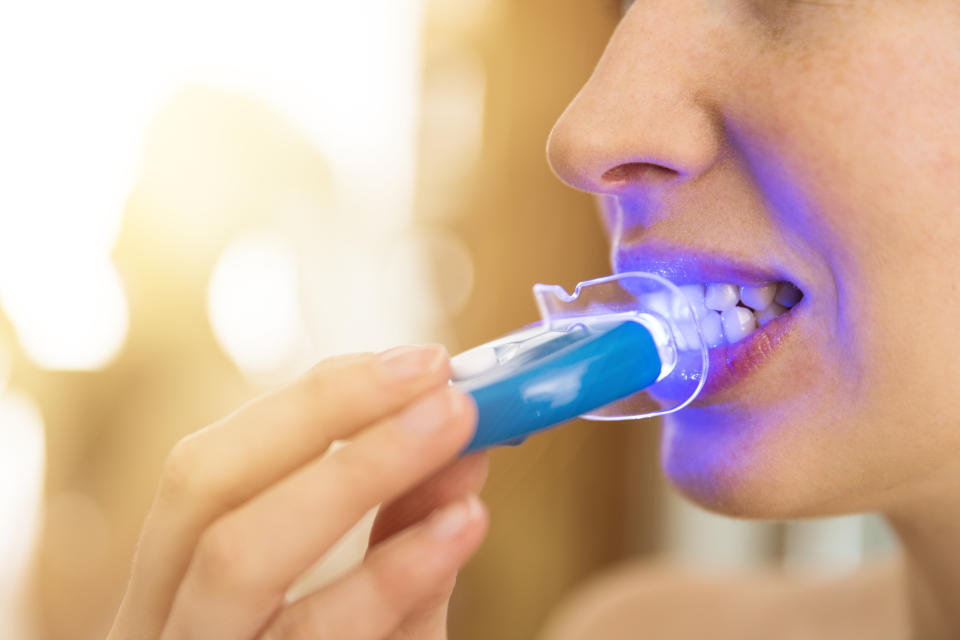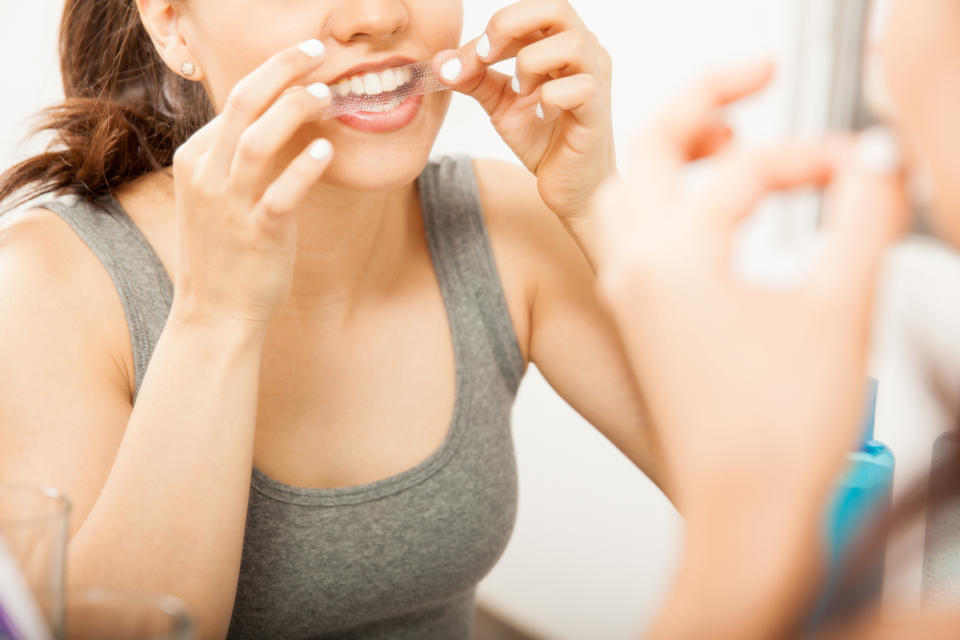Shoppers warned of dangers of using illegal teeth whitening kits

In these Insta-perfect times the desire for a pearly white smile is strong, with research by Mintel revealing more than a third of adults have considered getting their teeth whitened.
Of course, the safest way to achieve a Hollywood smile is by heading to a certified pro, but with dental clinics closed for treatments during lockdown, many have been turning to at home DIY whitening treatments for a quick fix.
More than half (52%) of the people surveyed in the Mintel report, were using at home teeth whitening kits at least once a day, while a previous survey by Cosmetic Surgery Solicitors revealed that of the quarter (24%) of people who had whitened their teeth, the majority (68%) had used a home whitening kit.
But a new report by Which? has suggested wannabe-whiteners need to be aware that some at-home teeth whitening kits are not as effective as they claim to be and some may actually be dangerous to use if they do not comply with UK regulations.
Read more: As Kendall Jenner’s £20 teeth whitening pen launches in Boots, we put it to the test
While DIY home whitening kits are widely available, UK law stipulates that teeth-whitening products are only safe to be sold directly to the public if they contain no more than 0.1% hydrogen peroxide.
According to the British Dental Association (BDA), anything above this level should only be supplied, or used, under the supervision of a dentist.
This is because of the risk of damaging or burning your gums or mouth if the DIY kits are used incorrectly.
“Home whitening kits, in general, are likely to take longer and be less effective than treatment from the dentist,” a spokesperson for the BDA says.
“Because of the legal position on hydrogen peroxide, manufacturers of over-the-counter and online products may use other chemicals to whiten teeth.
“But we would advise you to be wary because these often fail to declare the precise chemicals used.”
A study recently published in the British Dental Journal indicates that the chemicals used in some of these products could damage tooth enamel.

Read more: 6 'health trends' that are damaging your teeth
But the real risk comes when you buy kits from sellers that are either not based in the UK or who are selling illegal products, according to the Which? report.
The publication bought products from two sites, www.ukteethwhitening.com and www.crestwhitening.co.uk.
The Which? research team found that one of the companies is actually based in Hong Kong and the other in Canada.
Both sell Crest Whitening Strips that are available in the US, but aren’t approved for sale in the UK as they contain well over the legal limit of hydrogen peroxide here.
Which? points out that Procter & Gamble, which manufactures Crest whitening strips, does not authorise their sale in the UK because it knows they do not comply with the regulations.
The products purchased from the websites came with no instructions and were unboxed. The Crest strips from www.crestwhitening.co.uk had no ingredients list.
Yahoo UK has contacted both retailers for comment and will update the article if a response is received.
“Which? has discovered a number of illegal home tooth whitening kits being sold to unsuspecting consumers that could risk damaging or burning gums if used incorrectly,” Natalie Hitchins, head of home products and services at Which? told Yahoo UK.
“It highlights how important it is to read and understand the ingredients when purchasing a kit.
“Under EU regulations, over-the-counter home whitening kits sold in the UK should not contain more than 0.1% hydrogen peroxide so consumers should stay clear of any products that exceed this level of concentration.
“If you buy a kit online that does not include any instructions, ingredients or safety instructions, do not use it, as it is may be illegal and could be dangerous to use.”

What can you do to stay as safe as possible while purchasing at home whitening kits?
“It’s really important to look at the hydrogen peroxide levels in home whitening kits,” said dentist, Dr Richard Marques (a member of the BDA). “This should be 0.1% or less - anything above this level can only be provided and administered by a dentist.
He also suggests consumers should be aware of whitening toothpastes that contain silica, as this can be very abrasive and damage the protective enamel coating of the teeth.
“You should also look for a CE mark and evidence that it conforms to EU regulations of health, safety and environmental protections standards for products,” he adds.
Read more: Tooth decay is worse today than in the 17th century
“Generally, I would always recommend teeth whitening to be done by a professional dentist to ensure you’re getting the best quality treatment and aftercare. Dentists can provide custom teeth whitening moulds/trays with dental grade gels which are custom for each person.”
For those wanting to whitening their teeth more naturally, the BDA say some experts believe cleaning teeth with an electric toothbrush can make a difference.
Some brushes have whitening settings, which are designed to break down surface stains (by cleaning at a different frequency).




